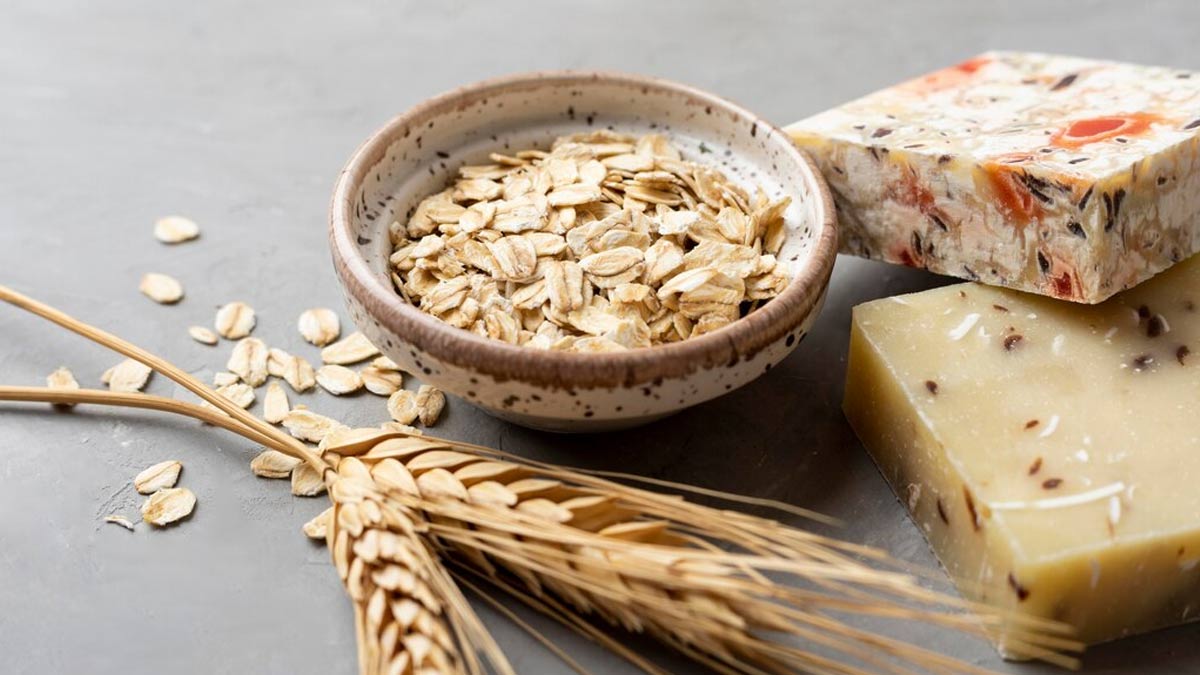
Oats are a staple in the pantry of anyone looking to eat a healthy diet, largely because of their well-documented health benefits and versatility in cooking. From oatmeal for breakfast to savoury baked goods, oats can be a nutritious component in a wide range of dishes. However, not all oats are created equal; they come in various forms, each with unique characteristics and benefits. Here’s a breakdown of the different types of oats and why they are good for your health.
Table of Content:-
Types of Oats
Whole Oat Groats
The most intact and whole form of oats, groats are hulled oat kernels that have been cleaned and removed from their hulls. They take the longest to cook, usually simmering for about 30-60 minutes. Groats retain most of the oat's natural nutrients and have a chewy texture and nutty flavour.

Also read: Oats Oil For Skin: Retain The Natural Glow and Treat Pimple Scars With Oat Oil
Steel-Cut Oats (Irish Oats)
"These are produced by chopping whole oat groats into two or three pieces with a steel blade. Steel-cut oats offer a denser and chewier texture and take about 20-30 minutes to cook. They are less processed than rolled oats and maintain a low glycemic index, making them excellent for blood sugar control," said Sreemathy Venkatraman, a gut health practitioner & wellness nutritionist and the founder of ‘Mitha Aahara-Eat to Live.
Scottish Oats
Traditionally stone-ground into a meal, creating a creamier, porridge-like consistency when cooked. Scottish oats are similar to steel-cut in nutrition but differ in texture and cooking time.
Rolled Oats (Old Fashioned Oats)
"Whole oat groats are steamed to make them soft and pliable, then pressed to flatten. This process stabilises the healthy oils in the oats, thus extending their shelf life and reducing cooking time to about 10 minutes. Rolled oats are perfect for baking and making oatmeal," said Venkatraman
Quick Oats
Processed than rolled oats, quick oats are pre-cooked, dried, and then rolled and pressed slightly thinner than rolled oats. They cook in just about 1-3 minutes and have a mild texture, making them suitable for people who prefer a softer oatmeal.
Instant Oats
The most processed option, instant oats are pre-cooked, dried, and then rolled even thinner than quick oats. Often, they come with added flavourings and sugars and can be prepared in just minutes by adding hot water.

Health Benefits of Oats
Rich in Nutrients: Oats are a good source of carbs and fibre, including the powerful fibre beta-glucan. They also provide more protein and fat than most other grains. Oats are loaded with important vitamins, minerals, and antioxidant plant compounds.
High in Antioxidants
Oats contain a wide range of antioxidants that promote heart health and decrease blood pressure. Avenanthramides, only found in oats, are one such antioxidant group that helps lower blood pressure levels by increasing nitric oxide production.
Contain Beta-Glucan Fibre
Beta-glucan, a form of soluble fibre found in oats, has numerous benefits. It helps reduce cholesterol and blood sugar levels, promotes healthy gut bacteria, and increases feelings of fullness.
Also read: Types Of Oats: Which One Is the Best? Nutritionist Explains
Can Improve Blood Sugar Control
Due to the beta-glucan fibre's presence, oats can improve insulin sensitivity and help lower blood sugar levels.
Heart Health
Oats can lower cholesterol levels, helping to protect against heart disease. The beta-glucan fibre effectively reduces both total and LDL cholesterol levels.
Weight Loss
Oats can help you lose weight by making you feel fuller. It does this by slowing down the emptying of the stomach and increasing the production of the satiety hormone PYY.
Whether you choose steel-cut, rolled, or any other form, incorporating oats into your diet can provide significant health benefits. They are not only delicious and easy to cook, but they can also aid with heart health, blood sugar control, and weight management. Choosing less processed versions, such as steel-cut or rolled oats, can improve health, but all types are nutritious.
Also watch this video
How we keep this article up to date:
We work with experts and keep a close eye on the latest in health and wellness. Whenever there is a new research or helpful information, we update our articles with accurate and useful advice.
Current Version